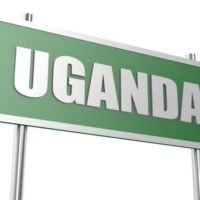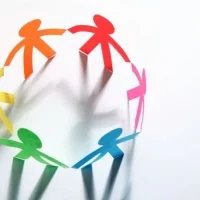Deadline: 10-Jan-24
UN Women has launched a call for proposals to strengthen women’s leadership and participation in national and local level decision‐making processes, empower economically by supporting women, especially those from the most vulnerable and excluded groups, promote environmental sustainability, climate and disaster resilience and transform gender discriminatory social norms and end harmful practices for inclusive and transformative human development.
UN Women aims to collaborate with a national non‐profit organization as the lead agency, along with consortium organizations representing three provinces, one from each) to implement the proposed intervention in three provinces, namely Madhesh, Karnali and Sudurpachim.
Objectives
- The key objectives of the initiative are:
- To promote leadership and substantive participation of elected women representatives in governance structures and processes.
- To strengthen capacities of duty bearers across governance institutions to promote and advance gender‐responsive and inclusive governance.
- To support women leaders, women living with disabilities, and their networks to address issues of gender and disability‐based inequalities; demand accountability for protection/fulfilment of their rights and entitlements and influence and shape the local development agenda.
Funding Information
- The budget range for this proposal should be under the range of USD 500,000‐520,000.
Time Frame
- 15 January 2024‐14 January 2026
Scope of Work
- To achieve the aforementioned objectives, the responsible party (RP) is expected to carry out the below activities in close collaboration with UN Women Nepal and provincial and local government agencies.
- Objective 1:
- Activity 1.1: Develop a capacity development plan based on the comprehensive capacity need assessment of the elected women representatives.
- The RP will develop a capacity development plan based on the capacity need assessment of the elected women representatives (EWRs) and other duty bearers (elected male representatives, key government officials and service providers) in the project LGUs from three provinces.
- Activity 1.2: Develop/adapt training manual(s) on women’s political empowerment and gender‐ responsive and inclusive governance, including key thematic areas.
- The RP will review and adapt the training packages developed by UN Women and its partner from past project interventions on capacity strengthening of elected women representatives and other duty bearers. The suggested training package will include i) Training on Feminist Leadership and Advancing Women’s Political Empowerment and ii) Gender Responsive and Inclusive Governance.
- Activity 1.3: Deliver comprehensive capacity development support to all elected women in selected LGUs from three project provinces.
- The RP will develop and roll out comprehensive capacity development support to all elected women representatives in the select LGUs of Madhesh, Karnali and Sudurpaschim Provinces. The RP shall facilitate regular trainings that take into account the different needs and circumstances among EWRs in different positions and with different backgrounds.
- The RP will deliver the following capacity development activitiesfor all elected women representatives in select LGUs in Madhesh and Sudurapashchim Province:
- Capacity development support to women Mayors/Deputy Mayors/Chairs/Vice Chairs in selected LGUs from 37 LGUs of three provinces (32 under EU‐UN Joint programme, seven from GoF funded interventions)
- Capacity development support to all elected women ward members from 17 focused project LGUs (10 under EU‐UN Joint Programme) and 7 LGUs (under GoF’s funded interventions).
- Peer‐support and mentoring to elected women representatives.
- Psycho‐social support and counselling
- Activity 1.4: Networking among elected women representatives within and cross provinces:
- Organize interactions between women Mayors/Deputy Mayors/ Chairs/Vice Chairs of 39 selected LGUs (32 under the EU support and 7 under the GoF’s support) from three provinces. Subjects of interactions can include experiences related to specific core functions of Deputy mayors/ Vice Chairs in local governments; examples of women’s leadership and strategies for enhancing their potential to succeed in their roles; experiences of and strategies for interacting with men elected representatives, civil servants, other women elected representatives, and constituents; and discussions on addressing discriminatory norms and practices, violence against women in public and political life and other harmful practices.
- Activity 1.5: Experience sharing/learning platforms between current and former elected women representatives (mayors/deputy mayors/Chairs/Vice Chairs).
- Organise interaction meetings between former and current women mayor/deputy mayors/Chairs/Vice Chairs in each project province for experience sharing and learning. Subjects of interactions can include experiences of both former and current deputy mayors, strategies applied by former deputy mayors that was effective to interact and negotiate with elected men representatives, government officials and other women elected representatives and constituents, strategies to advocate for gender responsive budgeting, strategies to address violence against women in public and political life, discriminatory norms and harmful practices.
- Activity 1.1: Develop a capacity development plan based on the comprehensive capacity need assessment of the elected women representatives.
- Objective 2:
- Activity 2.1: Strengthening institutional capacity of Social Development Department (SDD) of LGUs to advocate for gender equality and social inclusion across LGUs policies, programming and planning:
- Conduct capacity development training to key government officials and representatives from Social Development Department (SDD) including gender focal points to equip them with necessary knowledge and skills to mainstream GESI/GRB/social accountability across sectors from focused 17 focused project LGUs.
- Need based accompaniment and mentoring support: Regular coaching and mentoring support will be provided to staff/focal point of Social Development Department on the substantive and technical aspects of GESI mainstreaming across sub‐sectors in the 17 focused project LGUs for policy formulation, planning, budgeting and programming including social accountability.
- GRB expert support to select project LGUs: The institutional capacity development component will also provision GRB technical experts to be placed in five focussed project LGUs (3 LGUs under EU‐UN joint programme and 2 LGUs under GoF supported interventions).
- Activity 2.2: Conduct reflective dialogue sessions in 17 focused LGUs with elected male and female representatives, civil servants and community members on key challenges to adopt/implement GESI policy/strategies and promote gender equality and women empowerment (in total 30 sessions, 3 dialoguesfor LGUs). Each dialogue session should have approximately 30‐35 participants. The selected RP will adapt the discussion tools developed by UN Women under the story telling initiative.
- Activity 2.3: Promote a pool of ‘Gender Equality Champions”: The responsible party will engage with male representatives and civil servants, male political leaders/community leaders and identify a pool of male representative who are gender responsive. They will be promoted as ‘Gender Equality Champions” across programming for public recognition and demonstrate role models advocating positive masculinities.
- Activity 2.4: Provide Technical support to draft/implement GESI policy/strategies to project provinces and LGUs.
- Technical support to project LGUs. The support will include technical support to draft/strengthen GESI policy and strategies as and where required. For those LGUs who have already adopted GESI policies, the RP will support to strengthen and operationalise the policy facilitating in‐house sharing/reflection meetings bringing all sections together through Social Development Department. A total of 2 sharing/reflection meeting will be organised in each project LGUs.
- Technical support to two project provinces: The support will include technical support to draft GESI policy and strategies as and where required. For those provinces who have already adopted GESI policies, the RP will support to internalize the policy facilitating in‐house sharing/reflection meetings within Ministry of Social Development as well as across provincial ministries bringing gender focal points and key government officers from all provincial ministries and Provincial Planning Commission.
- Activity 2.6: Provide technical support to local governments to conduct public hearings, social audits and gender audits. The RP will provide technical and logistical support to project LGUs for organizing public hearings and social audits (social accountability tools). These hearings aim to gather testimony from the general public, including women and marginalized groups, regarding the plans and programs of the LGUs, thereby ensuring government accountability.
- Activity 2.1: Strengthening institutional capacity of Social Development Department (SDD) of LGUs to advocate for gender equality and social inclusion across LGUs policies, programming and planning:
- Component 3: Strengthen capacities of women’s organizations and networks, as well as disabled people’s organizations, to effectively engage with sub‐national governments and hold them accountable.
- The RP will identify new grassroot women’s organisations/organisations of persons with disabilities including Community based organisations (CBOs) and user’s groups in project LGUs from three provinces for capacity development and networking initiatives.
- Activity 3.1: Capacity development training to women’s organisations and networks including disabled people’s organisation on leadership and gender responsive and inclusive governance processes.
- Design and deliver a training on feminist leadership for representatives of women’s rights organizations from intersectional identities including women with disabilities (maximum 35 participants) with a focus on advocacy and accountability of GEWE.
- Training on gender and disability responsive planning and budgeting for representatives of women’s right organisations and Organisations of persons with disabilities (OPDs) from project LGUs to enable them to effectively represent and participate in local planning and budgeting process, user’s groups and hold local government accountable to gender equality, disability inclusion and women empowerment agendas.
- Design and deliver an orientation session on the importance of social accountability and its gender responsive application for CSOs and women’s rights organizations in particular, given their important role in implementing Social Accountability tools in gender responsive ways.
- Activity 3.2: Conduct public hearing/dialogues on GEWE: The RP will conduct two public dialogues in each project LGUs on local level plan, budget and services from gender and disability inclusion lens to hold government accountable to their commitments on gender equality and women’s rights.
- Activity 3.3: Conduct provincial level dialogue on Women’s leadership and Gender responsive and inclusive governance bringing together elected representatives, key policy makers from provincial and local level governments, political leaders and parliamentarians and women’s leader and relevant development partners working in the province.
- Activity 3.4: Conduct federal level dialogues on Women’s leadership and Gender responsive and inclusive governance bringing together elected representatives and key government officers from all three tiers of governance, representatives from women networks/organisations and development partners working on gender equality and women’s empowerment.
- Activity 3.5: Knowledge products and IEC materials: The RP will document the key GESI issues and develop knowledge products and IEC materials for advocacy campaign and dissemination of best practices.
- Activity 3.1: Capacity development training to women’s organisations and networks including disabled people’s organisation on leadership and gender responsive and inclusive governance processes.
- The RP will identify new grassroot women’s organisations/organisations of persons with disabilities including Community based organisations (CBOs) and user’s groups in project LGUs from three provinces for capacity development and networking initiatives.
- Objective 1:
Technical/Functional Competencies required
- Demonstrate technical competencies in the area (or areas) where the applicant is applying:
- Demonstrable organizational experience designing and implementing capacity development activities to elected representatives and key government officials on women’s leadership and political participation to advance gender responsive and inclusive governance.
- Proven technical competencies in application of human rights‐based and feminist approaches to advance gender equality and for ensuring their voices and needs as rights‐holders.
- Demonstrable organizational experience of forming and supporting networks of excluded groups, including at the community level.
- Sound knowledge of the governance system of Nepal, in particular the new context of federalism.
- Past experience working with provincial and local government on GESI policies and strategies, gender mainstreaming would be an added value.
- Demonstrated experience in implementing programmes on gender equality and women’s empowerment, and in formulating result‐oriented programme, monitoring programme based on indicators and quality reporting.
- Proven organizational experience in building strategic partnerships, connections, and networks with relevant partners, including women‐led organizations, CSOs and government agencies at all levels.
- Demonstrated commitment to working with women, girls, other genders that are economically, socially, culturally, or otherwise excluded, excluded and/or marginalized.
For more information, visit UN Women.









































